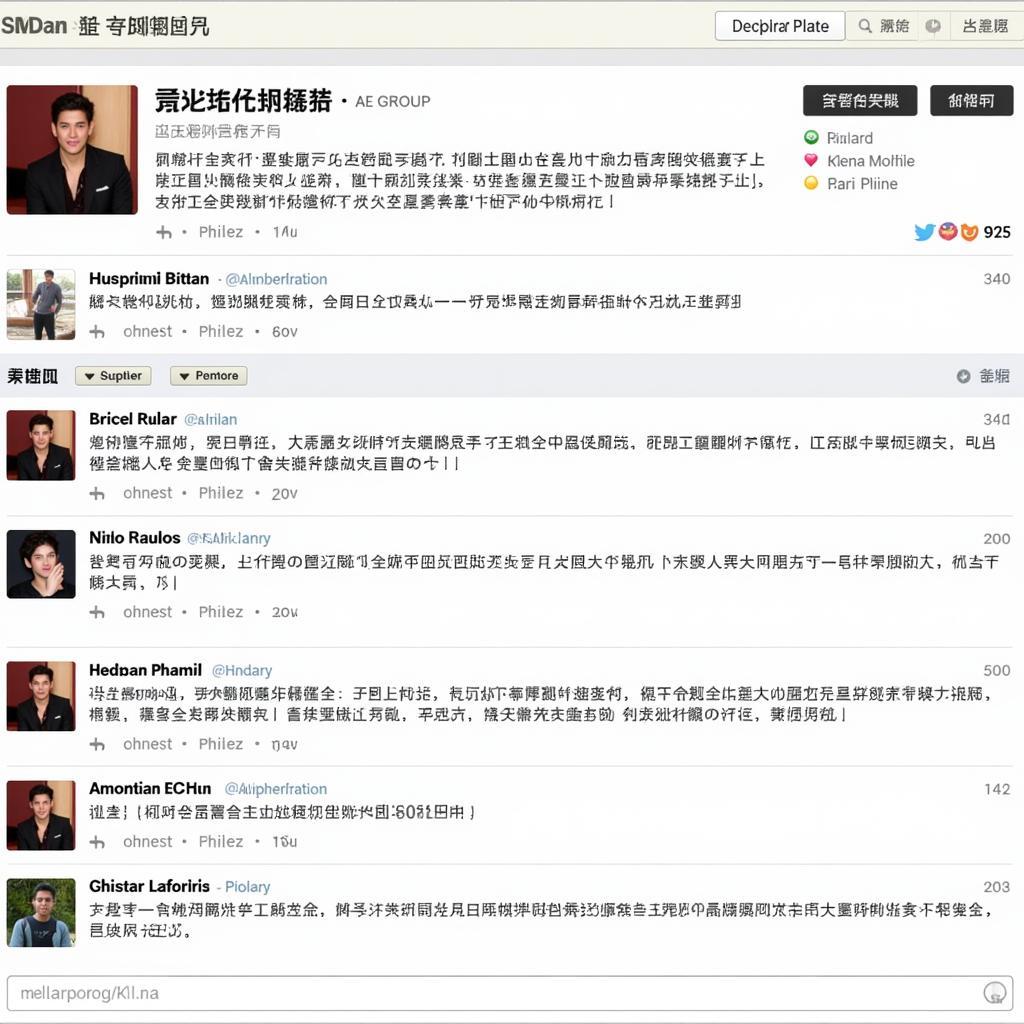The word “fan” in Chinese can be confusing for English speakers, as it has multiple meanings depending on the context. While it can refer to a device for creating a current of air, this article focuses on its other common meaning: “a person who has a strong interest in or admiration for a particular person or thing.” Understanding this word and its cultural nuances can provide valuable insights into Chinese society and how people express their passions.
The Characters and Pronunciation of “Fan” in Chinese
The Chinese word for “fan” is written as 粉丝 (fěnsī). Let’s break down the characters:
- 粉 (fěn): This character primarily means “powder” or “flour.”
- 丝 (sī): This character translates to “silk” or “thread.”
While the literal translation of “powder silk” might seem odd, it hints at the idea of something finely ground or a multitude of fine threads, suggesting a large group of devoted individuals.
Different Types of “Fans” in Chinese Culture
Similar to English, “fan” in Chinese can be used to describe enthusiasts of various things:
- Movie Fans (影迷 yǐngmí): Avid followers of films and actors.
- Music Fans (歌迷 gēmí): People passionate about music and musicians.
- Sports Fans (球迷 qiúmí): Dedicated supporters of sports teams and athletes.
- Celebrity Fans (明星粉丝 míngxīng fěnsī): Individuals with intense admiration for celebrities.
The Significance of “Fan Culture” in China
“Fan culture” (粉丝文化 fěnsī wénhuà) plays a significant role in contemporary Chinese society. With the rise of social media and entertainment platforms, fans have become increasingly organized and influential.
 Chinese fan groups
Chinese fan groups
Here are some key aspects of Chinese fan culture:
- Fan Groups (粉丝团 fěnsītuán): These are organized groups of fans who share a common interest and actively participate in activities to support their idols.
- Fan Economy (粉丝经济 fěnsī jīngjì): The immense purchasing power of fans has created a significant market in China. Fans contribute to album sales, concert tickets, merchandise, and endorsements.
- Fan Interactions (粉丝互动 fěnsī hùdòng): Chinese fans are highly engaged online, using social media platforms to interact with each other, their idols, and participate in fan-driven projects.
The Evolution of “Fan” in Chinese Language
The term “fěnsī” (粉丝) gained prominence in the late 20th century, influenced by Hong Kong and Taiwanese pop culture. Before that, other terms like “aihao zhe” (爱好者) meaning “enthusiast” were more commonly used.
 Evolution of Chinese fan culture
Evolution of Chinese fan culture
Understanding the Nuances of “Fan” in Chinese
It’s crucial to remember that the Chinese understanding of “fan” goes beyond simple admiration. It often involves a strong sense of community, loyalty, and even a sense of ownership over the object of their fandom.
“Chinese fans are deeply invested in the success of their idols,” says Dr. Li Wei, a sociologist specializing in Chinese youth culture. “Their support goes beyond casual consumption; it’s about active participation and contribution.”
Conclusion
Understanding the term “fan” in Chinese offers a glimpse into the dynamic and evolving culture of fandom in China. It highlights the power of shared passions and the significant impact fans have on entertainment, consumerism, and even social trends. As Chinese culture continues to influence the global stage, understanding the nuances of “fan” provides valuable insights into this increasingly interconnected world.
FAQs
1. What are some common ways Chinese fans show support?
Chinese fans demonstrate support through various activities like attending concerts and fan meetings, creating fan art and videos, trending hashtags on social media, and participating in organized projects like birthday celebrations for their idols.
2. Are there any negative aspects to Chinese fan culture?
Like any passionate community, there can be downsides. Issues like cyberbullying, invasion of privacy, and overly obsessive behavior sometimes arise within certain fan groups.
3. Is the Chinese concept of “fan” similar to other East Asian countries?
Yes, the concept of dedicated fan culture, particularly surrounding celebrities and entertainment, is prevalent in other East Asian countries like South Korea and Japan, each with its unique characteristics.
4. Where can I learn more about specific Chinese fan groups?
Online platforms like Weibo and Douban are great resources to find information about specific fan groups and their activities.
 Chinese social media fan communities
Chinese social media fan communities
5. How has the Chinese government responded to the rise of fan culture?
The Chinese government has taken steps to regulate certain aspects of fan culture, particularly concerning online behavior and the potential for fan activities to disrupt social order.
Need further assistance? Contact us at Phone Number: 0903426737, Email: [email protected] Or visit us at: Group 9, Area 6, Gieng Day Ward, Ha Long City, Gieng Day, Ha Long, Quang Ninh, Vietnam. We have a 24/7 customer support team.


